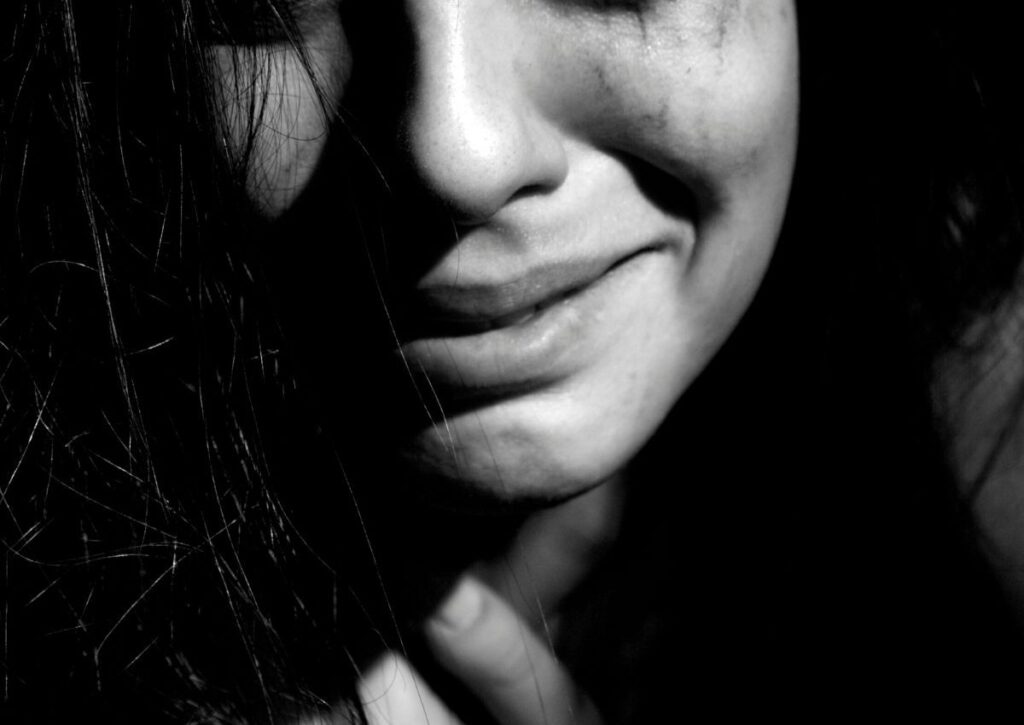Prison Journalism Project trains incarcerated writers to become journalists and publishes their stories. Subscribe to Inside Story to receive exclusive behind-the-scene looks at our best stories, as well as author profiles and other insights.
I sat with the phone pressed to my ear, staring blankly at white cinder blocks as tears slid down my cheeks. My sister, Silmarien, had just told me our dad was dying.
Three months before, he had suffered a massive stroke, setting off an onslaught of mini-strokes and seizures. Then he contracted COVID-19 and fell into a nearly catatonic state.
ALSO READ: Prison journalism: Forgotten Youth
While all this happened, I was stuck in a Virginia prison. I felt hurt, sorrow and longing; it was all compounded by guilt.
Years before, I had refused my dad’s overtures for reconciliation.
When we were kids, we were separated from our father and placed in child protective services. In my 20s, he reached out to me through my older sister and attempted to reunite. I refused because I was still bitter, angry and hurt.
But now, behind bars, I felt powerless. I realised I might never get a chance to hug him or say goodbye. After serving 14 years, I only had three years left on my sentence. I was so close to going home. Couldn’t he hold on just a little longer?
ALSO READ: Prison journalism: The feelings I hold for Nelson Mandela
In the following weeks, Silmarien made several trips to see our dad and allowed me to speak with him on the phone when he could muster it. Sometimes he didn’t know who I was, but occasionally he slurred a response, calling me “Pup-pup” as though I were still small enough to sit on his lap.
“When are you getting out of there?” he once asked me.
“Soon, Daddy,” I responded, emotions clogging my throat.
Then, on the morning of March 20, 2023, Silmarien told me over a brief phone call that our dad had died.
That launched a hectic week for me. Since I couldn’t be physically present to plan my father’s memorial, I tried to call family and help as much as possible. When I would use up my daily allotted five phone calls, I would illegally borrow friends’ personal identification numbers to make more. I emailed all my JPay contacts and requested that donations be sent to Silmarien to cover the costs of final arrangements.
When she was overwhelmed, I offered support and encouragement and walked her through the things that had to be done. I met with a prison counsellor, my housing unit manager and our prison chaplain. I signed papers authorising cremation and applied for a virtual bereavement visit for my dad’s memorial service.
ALSO READ: Pollsmoor Prison: 10 notable former inmates
There was so much to do. I only had time to cry when one of my friends made me pause to rest. At night I couldn’t sleep. “My dad is dead” repeated in my mind on an endless loop.
I was flooded with memories: my dad squatting at the side of the pool where we spent summer days. I remembered his broad, strong back warm beneath me as I climbed onto it and wrapped my short legs around his waist. I gripped his long braid like a rein, holding my breath as he dove in the water, light streaks dancing over his suntanned skin.
Darker memories plagued me too. Coming home from school one afternoon, two cops corralled my dad as he raged about betrayal. Confusion and terror coiled tightly inside me. I was instructed to gather clothes, then was whisked from home to join my siblings at the social services office. From there, we entered foster care. I didn’t know that would be one of the last times I ever saw my father.
ALSO READ: Prison life: The daily routine of an inmate at Pollsmoor
Pushing through harried days and restless nights, we organised his memorial. I attended the service via Microsoft Teams, sobbing silently when the bishop played The Beatles’ “Yesterday” on the cello. My niece read a statement I’d prepared. When the service ended, I was permitted to spend a few minutes virtually visiting aunts, uncles and cousins I hadn’t seen since childhood.
Since my father died, I’ve struggled with anger, impatience, irritability and deep longing. But he raised me to be strong, to survive. I am not broken by his death. I am healing, with love and support from my prison family.
I will always cherish the gift of reconnecting with my dad before it was too late — even if we were never able to embrace each other again on the outside. Hearing him in such a vulnerable, child-like state forced me to confront and discard my desire for an apology from him that would never come.
I was able to forge a new relationship with him before he died, unencumbered by guilt or resentment. That relationship was brief, but it saved and then reinforced a bond between us that is unbreakable by distance, time, pain or death.
Written by Mithrellas Curtis
Disclaimer: The views in this article are those of the author. Prison Journalism Project has verified the writer’s identity and basic facts such as the names of institutions mentioned.
Do you have any questions you would like to ask our prison journalists?
Do you have contact with a prison inmate who would like to write for The South African website?
If so, send an email to info@thesouthafrican.com or a WhatsApp to 060 011 021 1
You can also follow @TheSAnews on Twitter and The South African on Facebook to get the latest prisoner journalism articles.

